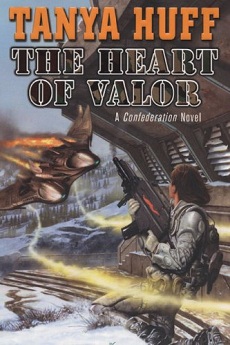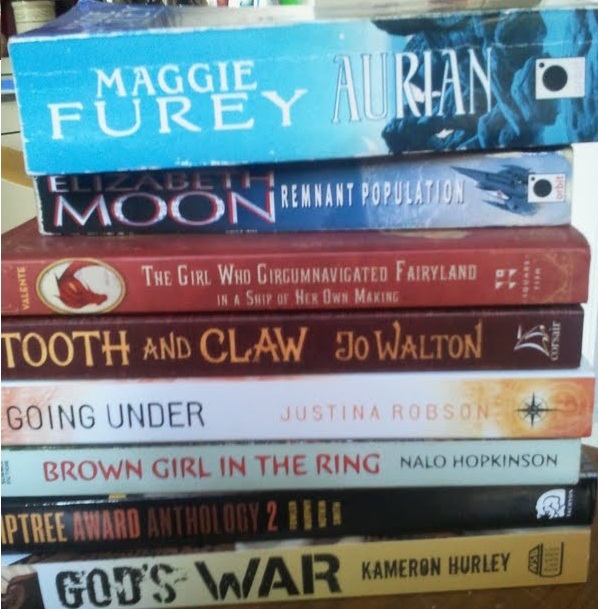Every Wednesday, I try and showcase a female writer who is special to me for one reason or another, in an attempt to focus more attention on female sf and fantasy writers. I will limit this to writers I’ve actually read multiple books of, if only to have an excuse to link to old reviews on my booklog. To kickstart the series, what better author to start with than Joanna Russ?
Joanna Russ after all was the first prominent feminist science fiction writer, the first to explicitely examine gender relations in her fiction and keep it up as a main theme in many of her stories. In the process she also took aim at some of science fiction’s founding myths. For example, in We Who Are About to… , where she took the old concept of a crashed space ship on an unexplored planet and the brave survivors attempting to restart civilisation there and let her heroine steadfastly refuse to take part in it.
At the same time Russ was also active in reclaiming some of the lost history of women writers, most famously in her 1983 book, How to Suppress Women’s Writing, which looked at how female authors had been written out of literary history:
“She didn’t write it. But if it’s clear she did the deed… She wrote it, bit she shouldn’t have. (It’s political, sexual, masculine, feminist.) She wrote it, but look what she wrote about. (The bedroom, the kitchen, her family. Other women!) She wrote it, but she wrote only one of it. (“Jane Eyre. Poor dear. That’s all she ever…”) She wrote it, but she isn’t really an artist, and it isn’t really art. (It’s a thriller, a romance, a children’s book. It’s sci fi!) She wrote it, but she had help. (Robert Browning. Branwell Brontë. Her own “masculine side”.) Sje wrote it, but she’s an anomaly. (Woolf. With Leonard’s help…) She wrote it BUT…”
Unfortunately Russ herself suffered from some of the same neglect. Most of her science fiction work was written at the start of her career, in the late sixties and seventies. Various chronic health problems kept her from writing more and many of her books fell out of print. She kept up her non-fiction writing for longer, but the science fiction field is terrible at keeping abreast with what’s happening elsewhere. Nevertheless for those who do come across her, for those who find feminism important, she was and is an important writer, somebody widely taught in university classes on feminism and science fiction.
Of her works I’ve so far read three: Picnic on Paradise, The Female Man and We Who Are About to… . Of these three, the first is an enjoyable adventure story with an interesting heroine, the second is a stone cold classic and the last is an impressively bitter polemic.
Picnic on Paradise is an old fashioned adventure sf story, with a plot a Keith Laumer or a Lloyd Biggle could’ve used, but with a far greater focus on the group dynamics between Alyx and her fellow refugees. Which makes this somewhat more interesting then if it had only focused on external conflicts. Each of the characters feels real, is recognisable without being stereotyped, which makes the interplay between them interesting.
The Female Man is a tough book, but not a hard book to read. Joanna Russ is a brilliant writer and everything in here sparkles; at times you can only sit there open mouthed with awe. It’s a tough book because of the raw anger Russ has put in it.
We Who Are About To… is arguably Joanna Russ’ most famous and controversial novel after The Female Man. That novel became famous because of its outspoken feminism, still rare in science fiction at the time; if we’re honest, still somewhat rare today. We Who Are About To… comitted a greater sin however, by attacking the optimistic, can do attitude of classic science fiction, the belief that any adversity can be overcome by man’s unique fighting spirit. It’s not just that the protagonist doesn’t win in the end; even Asimov the arch-optimist had written “Founding Father” ten years earlier, a story in which four astronauts fight but fail to terraform a planet before it kills them. No, the real problem is that she rejects the choice out of hand and choses not to fight, not even to try.

